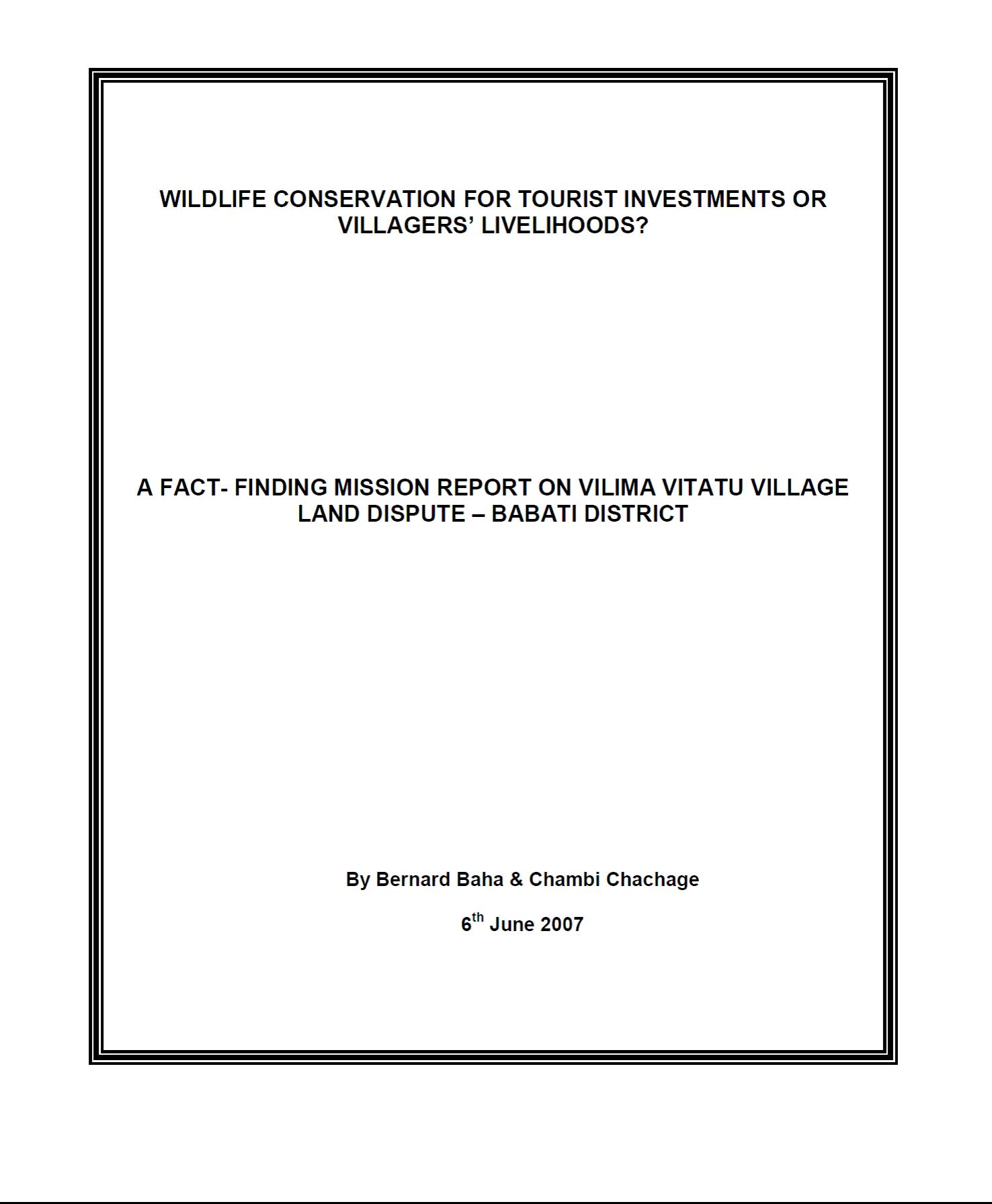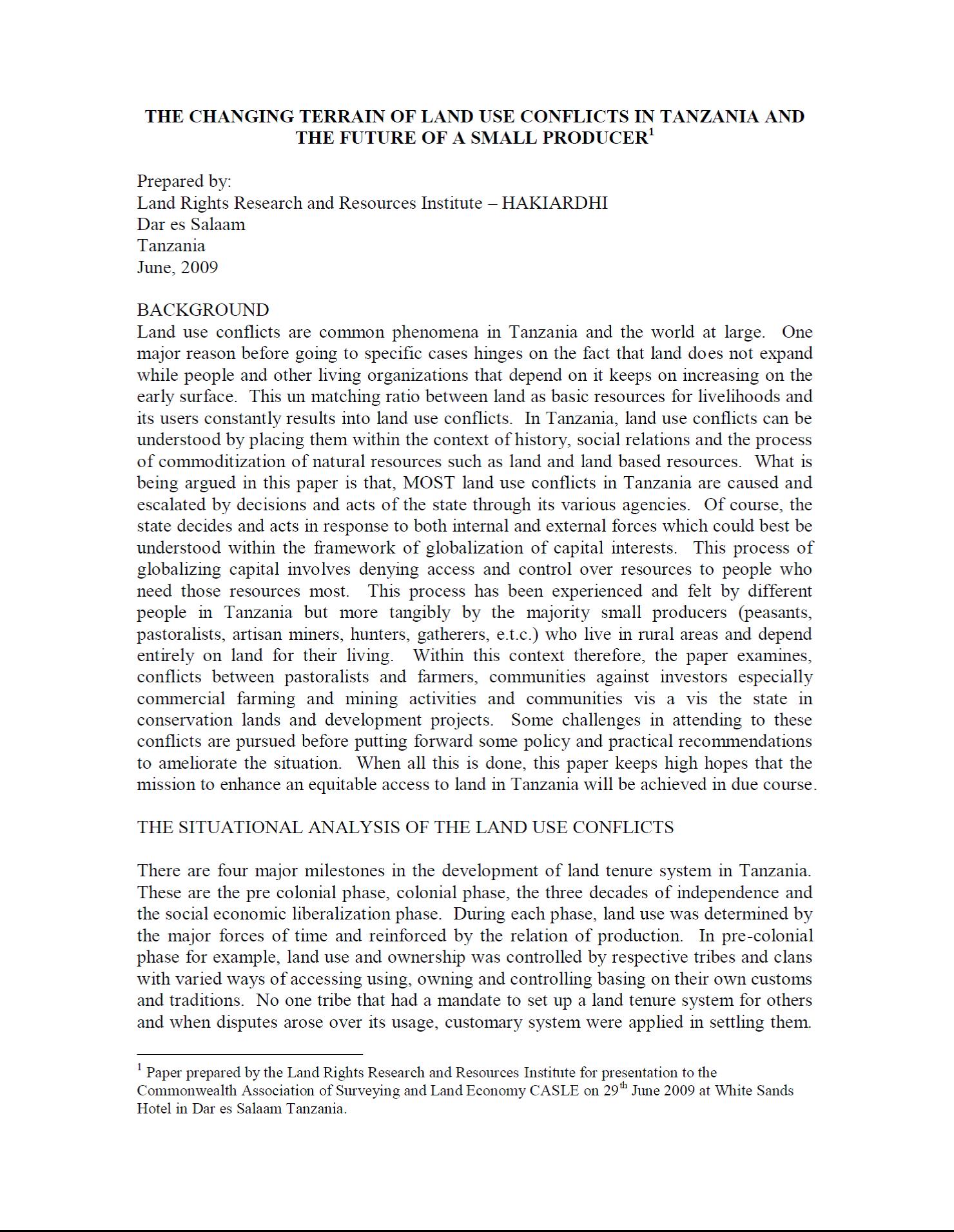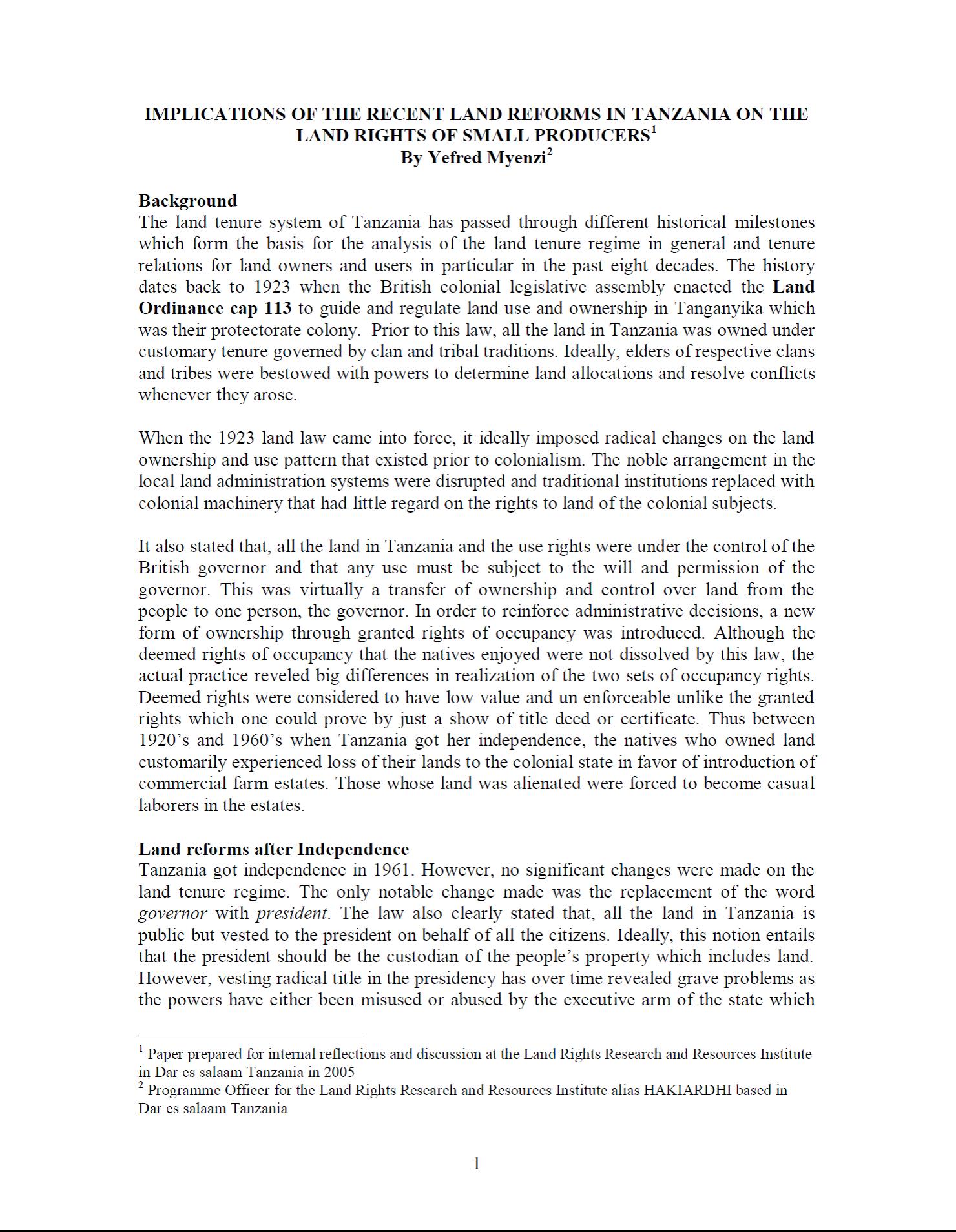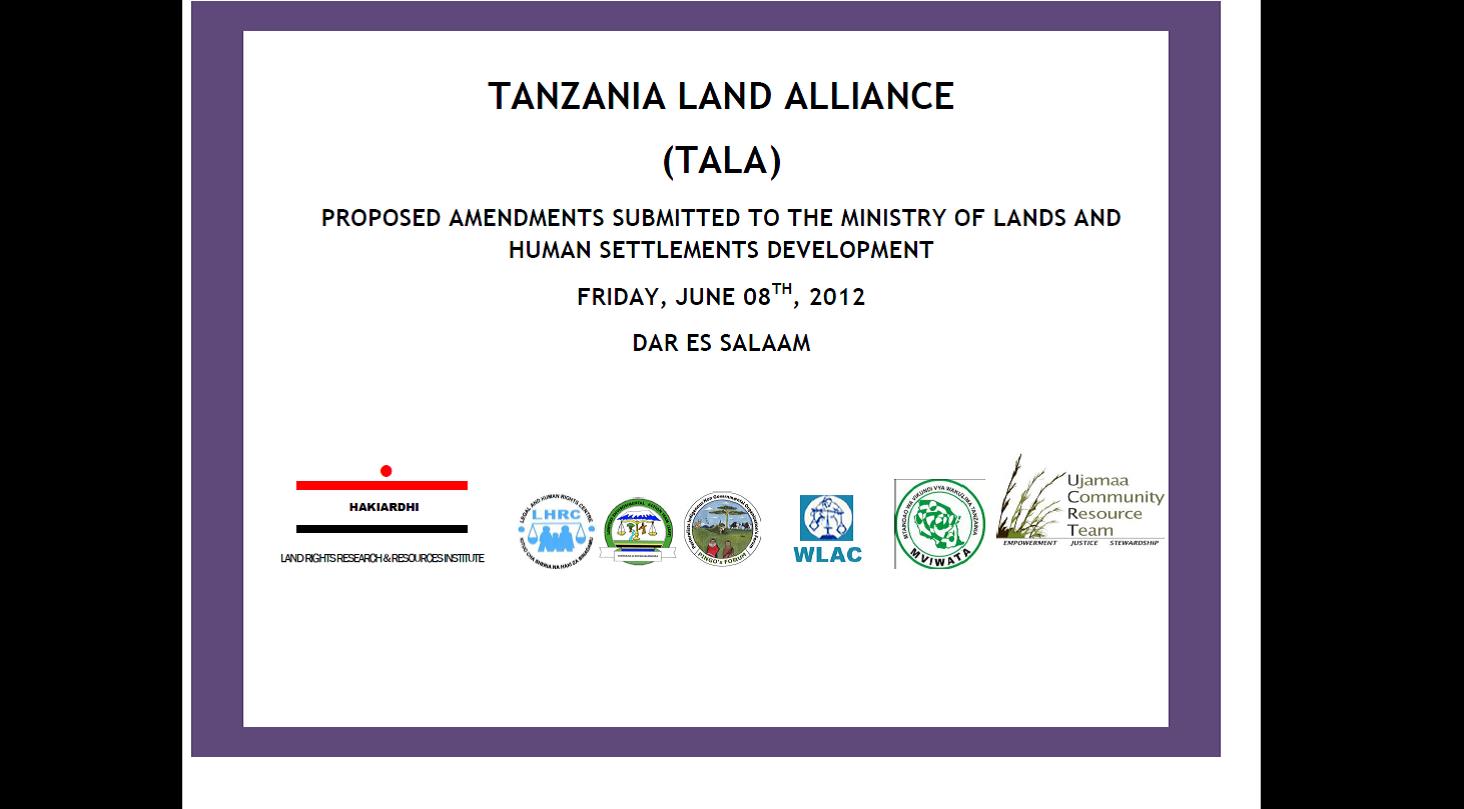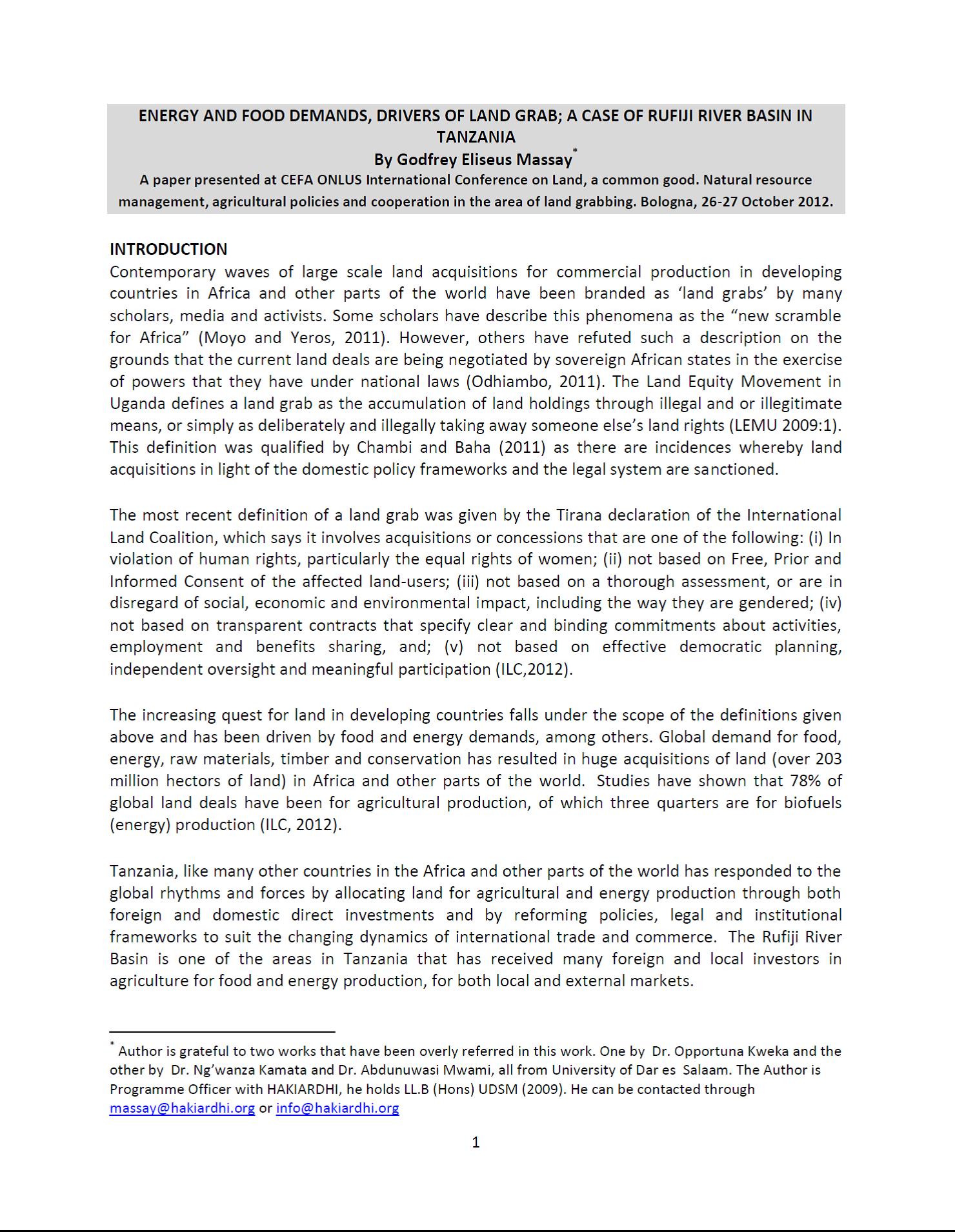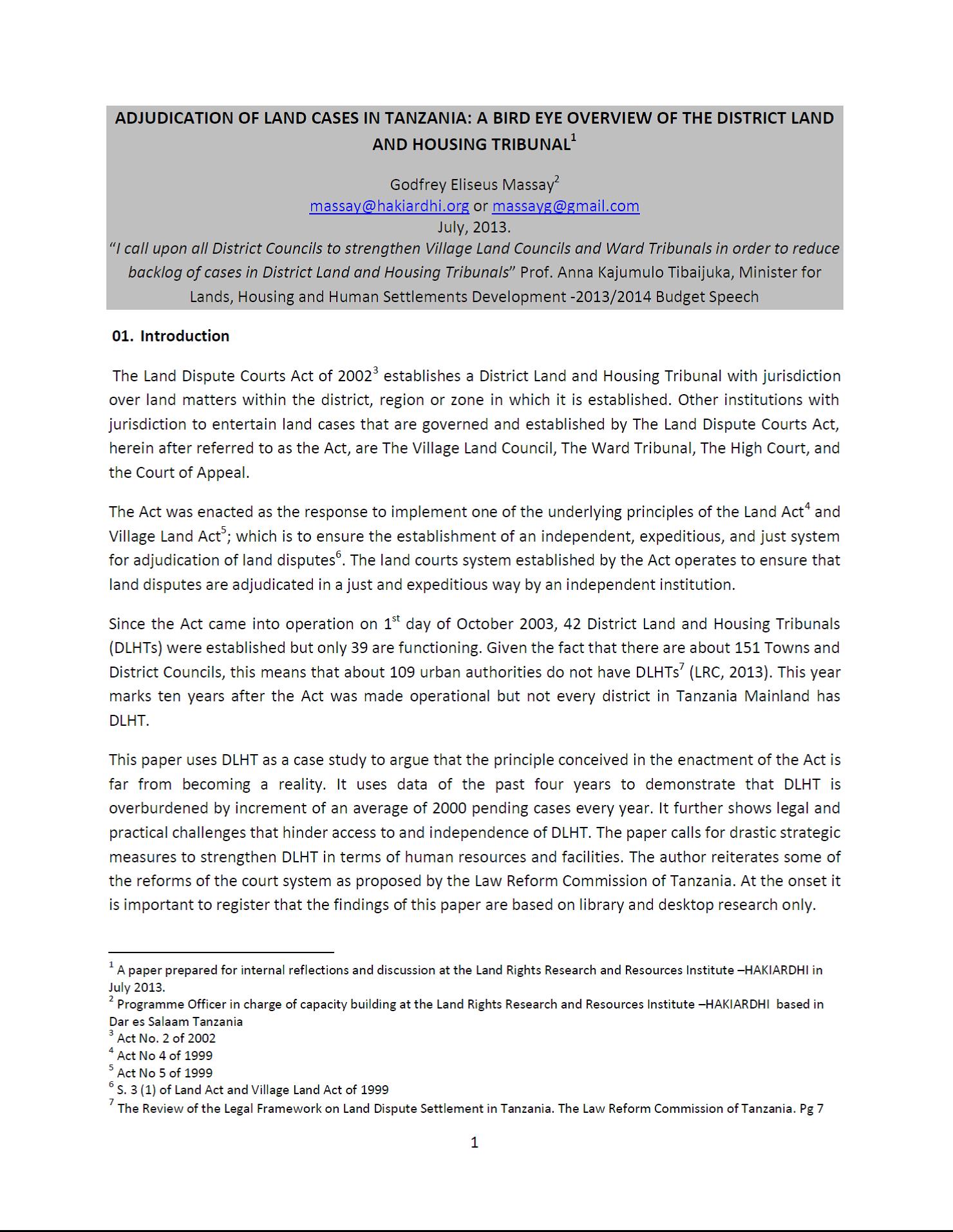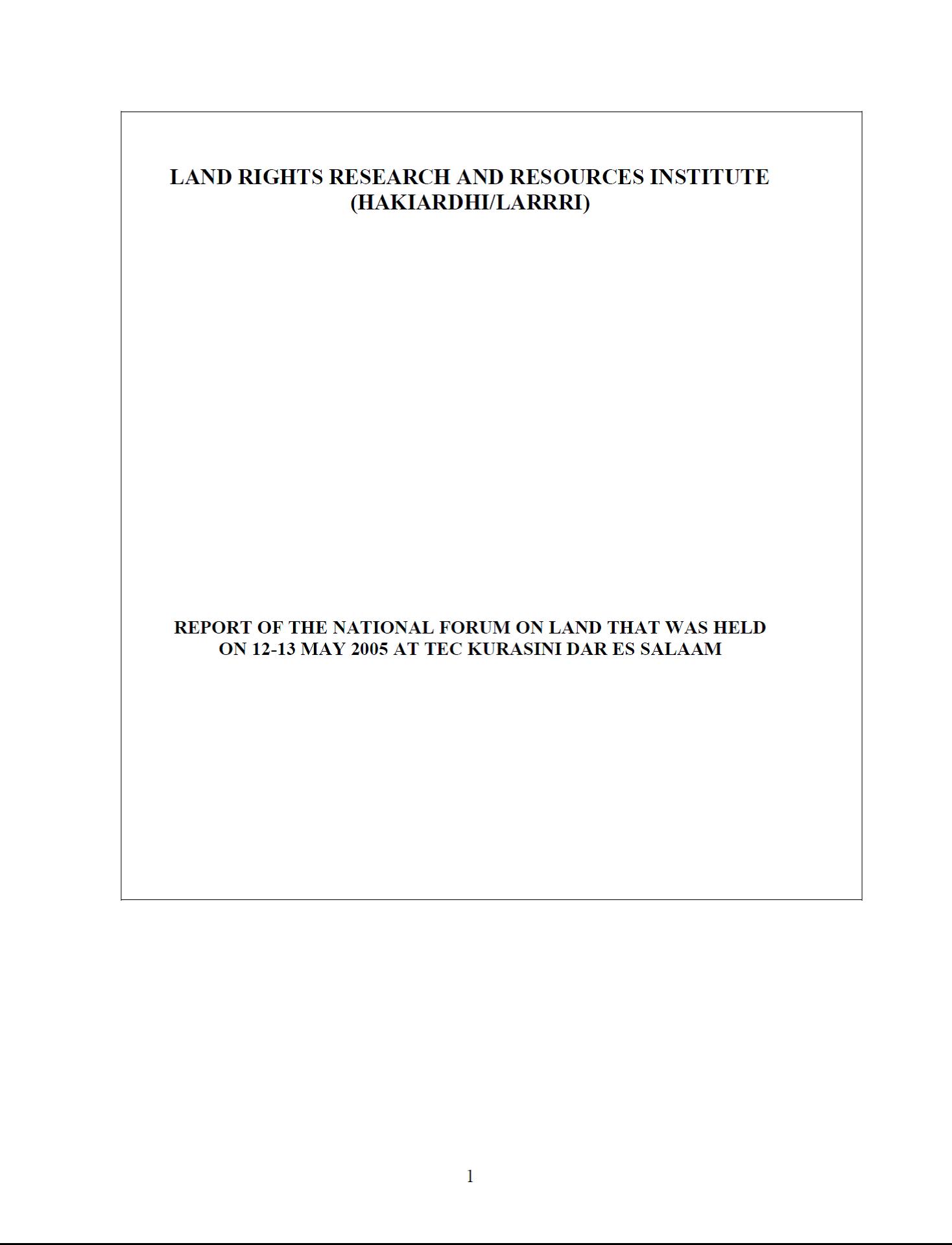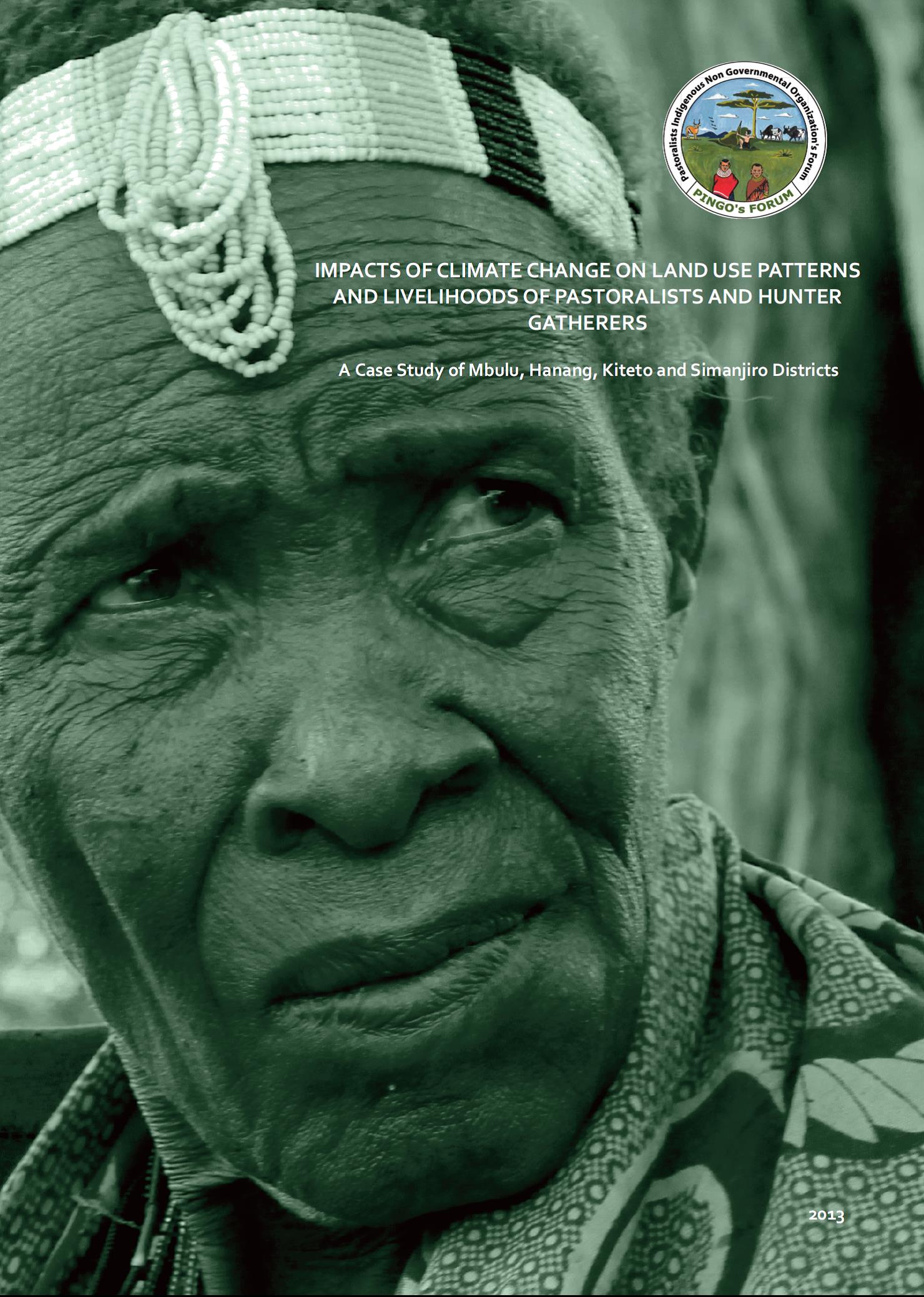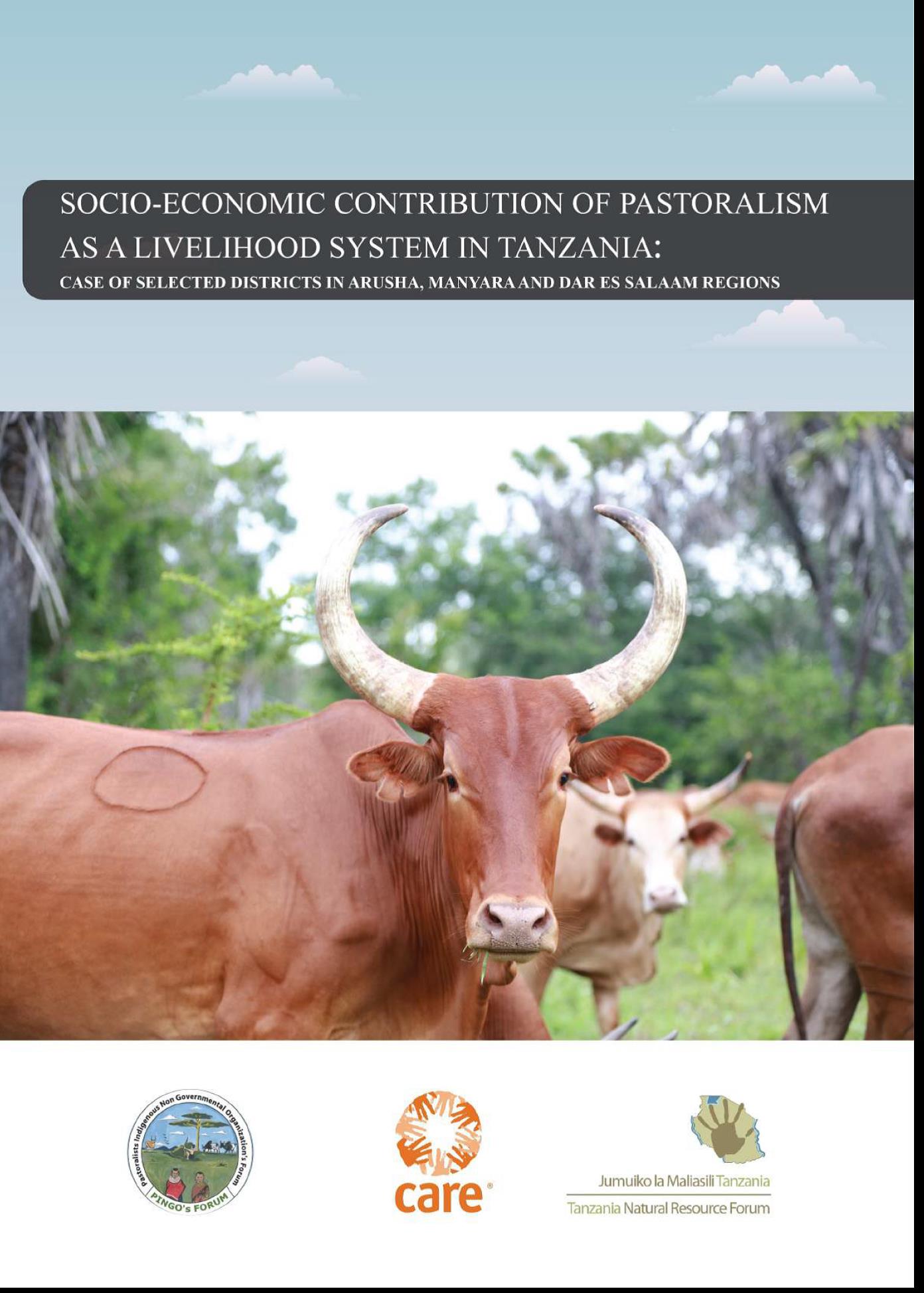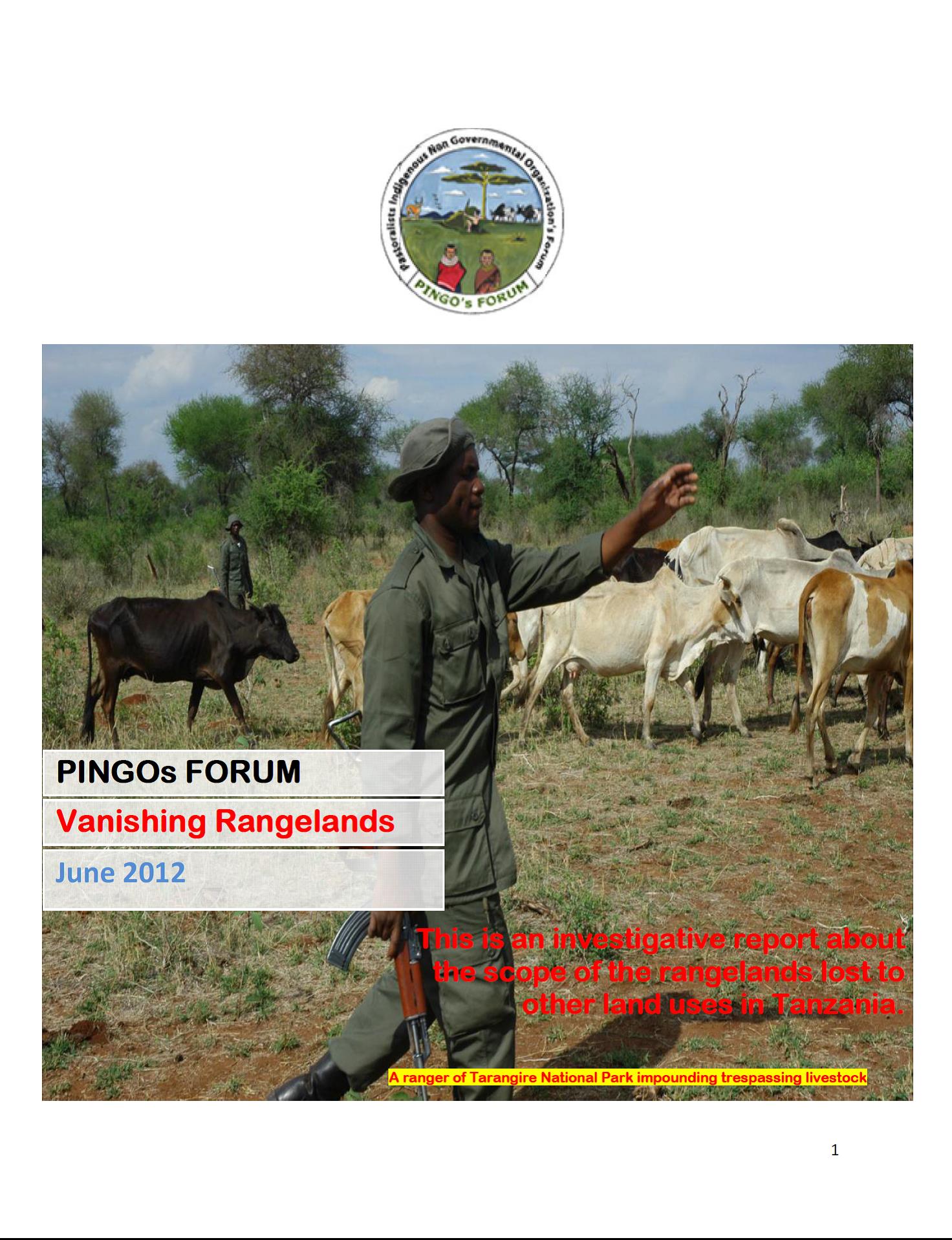Wildlife Conservation for Tourism Investments or Villagers' Livelihoods?
A fact-finding mission team was formed as a result of consultative meetings on the land dispute between the village government and pastoralists in Vilima Vitatu village in Babati district. The team was comprised of the following members: Kassian Mshomba (LHRC), Seif Mangwangi (Majira), Diana Mawalla (PINGOs Forum), Hamadi Sadick, Emmanuel Cornel (PINGOs Forum), Asraji Mvungi (ITV), Rodgers Luhwago (The Citizen), Bakari Mnkondo (Uhuru), Bernard Baha (HakiArdhi) and Chambi Chachage (Independent Researcher).

